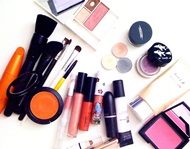HomeDermatology
Dermatology
Osteoporosis drug found to stimulate hair follicle growth
A new drug could ease the distress of men and women who suffer from baldness, according to researchers from The University of Manchester's Centre...
No meaningful benefit from emollient bath additives for children with eczema
Emollient bath additives provide no meaningful benefit when used in addition to standard eczema care in children, finds a trial. Bath additives are widely...
Generic skin cream reduces risk of SCC surgery
A clinical trial involving more than 900 military veterans at high risk for keratinocyte carcinoma skin cancer provides evidence that using the generic skin...
Facial exercise programme helps women look younger
A 30-minute daily or alternate-day facial exercise programme sustained over 20 weeks improved the facial appearance of middle-aged women, resulting in a younger appearance...
Improved healing for drained skin abscesses with trimethoprim-sulfamethoxazole
Trimethoprim-sulfamethoxazole treatment was associated with improved outcomes in patients with drained skin abscesses regardless of lesion size or guideline criteria, according to a study...
No added benefit from bleach baths for eczema
For patients suffering from eczema (atopic dermatitis), dermatologists will sometimes recommend bleach baths to decrease bacterial infection and reduce symptoms. But a new Northwestern...
Recommendation on safety of skin procedures after Tx with isotretinoin
International literature review regarding the safety of skin procedures performed either concurrently with, or immediately after, treatment with the acne medication isotretinoin.
For decades, it...
Asthma drug effective for patients with urticaria
The asthma drug Omalizumab is shown to be effective in treating hives, found two separate German clinical studies.
Patients who develop itchy wheals in response...
No benefit from using topical antibiotics for eczema
Findings from the CREAM study are that there is no meaningful benefit from the use of either oral or topical antibiotics for milder clinically...
Non-invasive technique to detect skin cancer
Researchers funded by the National Institute of Biomedical Imaging and Bioengineering have developed a non-invasive imaging technique that accurately detects skin cancer without surgical...
Swapping out armpit bacteria can end bad body odour
Swapping the underarm microbiome of someone with a body odour problem, with that of a less smelly relative, saw improvements in that in half of...
Five year efficacy of imiquimod in treating basal cell carcinoma
The success rates of imiquimod, a topical skin cream used to treat low-risk basal cell carcinoma (BCC), were sustained for the extended study period...
The pseudoscience of beauty products.
 The beauty industry is massive, a huge cultural force in a tight, symbiotic relationship with celebrities and the celebrity-oriented media. So by its very nature, it creates massive problems for anyone seeking to get to the truth about the products it makes and promotes, writes Prof Timothy Caulfield of the School of Public Health at the University of Alberta, in The Atlantic.
The beauty industry is massive, a huge cultural force in a tight, symbiotic relationship with celebrities and the celebrity-oriented media. So by its very nature, it creates massive problems for anyone seeking to get to the truth about the products it makes and promotes, writes Prof Timothy Caulfield of the School of Public Health at the University of Alberta, in The Atlantic.UV damage continues even indoors
Sunlight continues to cause skin damage for hours after people head indoors, according to a Yale University study. Meanwhile, German research has found that the main component of the root extract of the plant Glycyrrhiza inflata (Chinese Licorice), is able to protect the skin from subsequent UV damage.
Eczema medication not linked to paediatric cancer
The topical eczema medicine pimecrolimus appears unlikely to be associated with an increased risk of cancer in children, based on a group followed for 10 years, a new US study found.
Sun tanning could be addictive, research finds
Spending time basking in the sun's warming rays may have addictive properties, claim researchers in the US. BBC News reports that their study showed...
Hair products contain dangerous amounts of formaldehyde
A study at the University of Cape Town, led by Prof Nonhlanhla Khumalo, found that most commercial ‘Brazilian keratin type’ hair-straightening products contain ‘unacceptably...
Alternative therapy for young eczema sufferers
The number of children with atopic dermatitis, often referred to as eczema, is on the rise. And, reports Science Daily, in an effort to...
